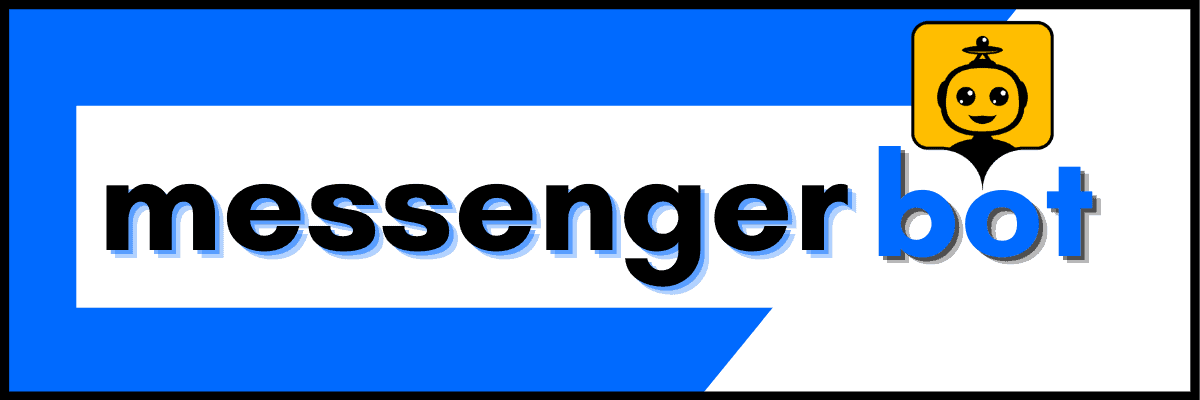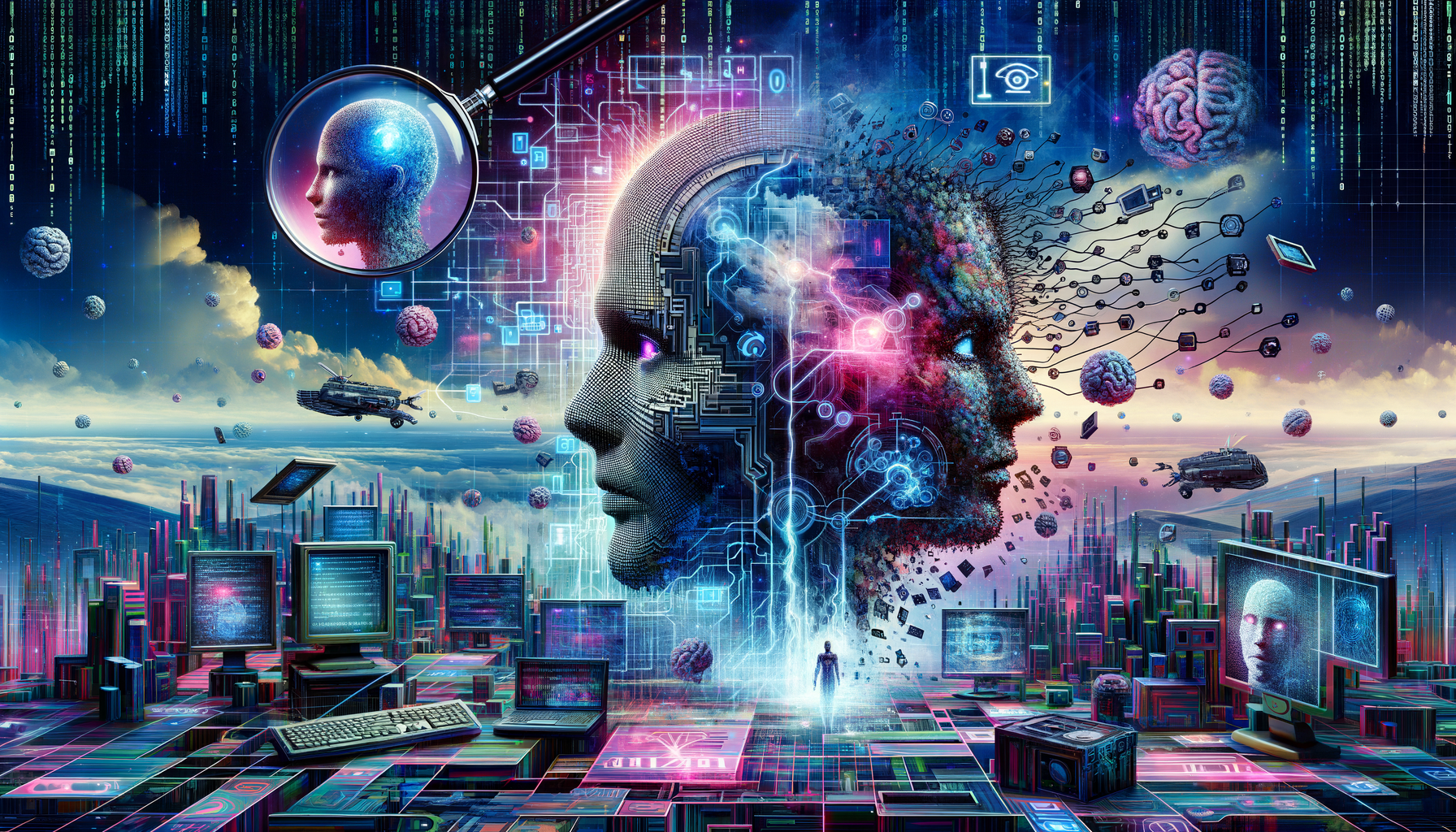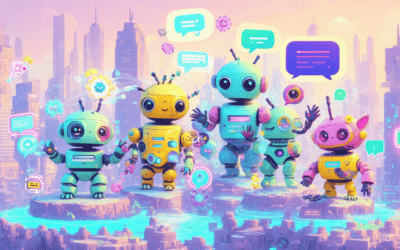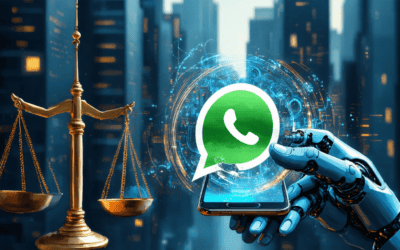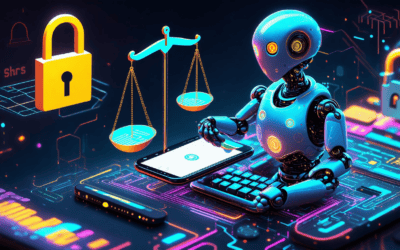In the rapidly evolving landscape of artificial intelligence, AI chatbot software has emerged as a game-changing technology, revolutionizing customer interactions and business operations. As we delve into 2023, the burning question on everyone’s mind is: “Is ChatGPT still the best AI chatbot?” This comprehensive guide will explore the current state of AI chatbots, comparing ChatGPT with other leading contenders, and examining free alternatives that are making waves in the industry. From roleplay AI chat bots to industry-specific solutions, we’ll uncover the top AI chatbot platforms, their features, and real-world applications. Whether you’re a business owner looking to enhance customer service or a tech enthusiast curious about the latest advancements, join us as we navigate the exciting world of AI chatbot software and discover which solutions are truly leading the pack in 2023.
Understanding AI Chatbot Software
AI chatbot software has revolutionized the way businesses interact with customers online. As a leader in this field, we at Messenger Bot have seen firsthand how these intelligent conversational agents are transforming customer service, lead generation, and overall user engagement across various digital platforms.
AI chatbots use natural language processing (NLP) and machine learning algorithms to understand and respond to user queries in real-time. They can handle multiple conversations simultaneously, provide 24/7 support, and offer personalized interactions at scale. This technology has become increasingly sophisticated, with advanced features like multilingual support and integration with e-commerce platforms.
What is AI chatbot software?
AI chatbot software is a type of artificial intelligence program designed to simulate human-like conversations through text or voice interactions. These intelligent systems can understand context, learn from past interactions, and provide relevant responses to user queries. Unlike traditional rule-based chatbots, AI-powered chatbots can handle complex queries and improve their performance over time.
Key components of AI chatbot software include:
- Natural Language Processing (NLP) for understanding user input
- Machine Learning algorithms for continuous improvement
- Dialog management systems for maintaining context in conversations
- Integration capabilities with various platforms and databases
At Messenger Bot, we’ve developed our AI chatbot software to excel in these areas, providing businesses with a powerful tool for enhancing customer interactions and streamlining operations. Our free trial offer allows companies to experience these capabilities firsthand.
Evolution of chatbots and AI technology
The journey of chatbots from simple rule-based systems to sophisticated AI-powered assistants has been remarkable. Early chatbots, like ELIZA in the 1960s, used pattern matching and predefined responses. Today’s AI chatbots, exemplified by platforms like ChatGPT and our own Messenger Bot, leverage advanced machine learning techniques to understand context and generate human-like responses.
Key milestones in chatbot evolution include:
- 1960s: Rule-based chatbots with simple pattern matching
- 1990s: Introduction of Natural Language Processing
- 2010s: Rise of machine learning and AI in chatbot development
- 2020s: Integration of deep learning and neural networks for more natural conversations
The latest advancements in AI technology have led to chatbots that can not only answer questions but also perform tasks, analyze sentiment, and even engage in creative writing. For instance, Brain Pod AI has developed impressive AI writing capabilities that complement chatbot functionalities.
As we continue to innovate at Messenger Bot, we’re excited about the future possibilities of AI chatbot technology. From enhancing customer support with conversational AI to revolutionizing lead generation, the potential applications are vast and growing.
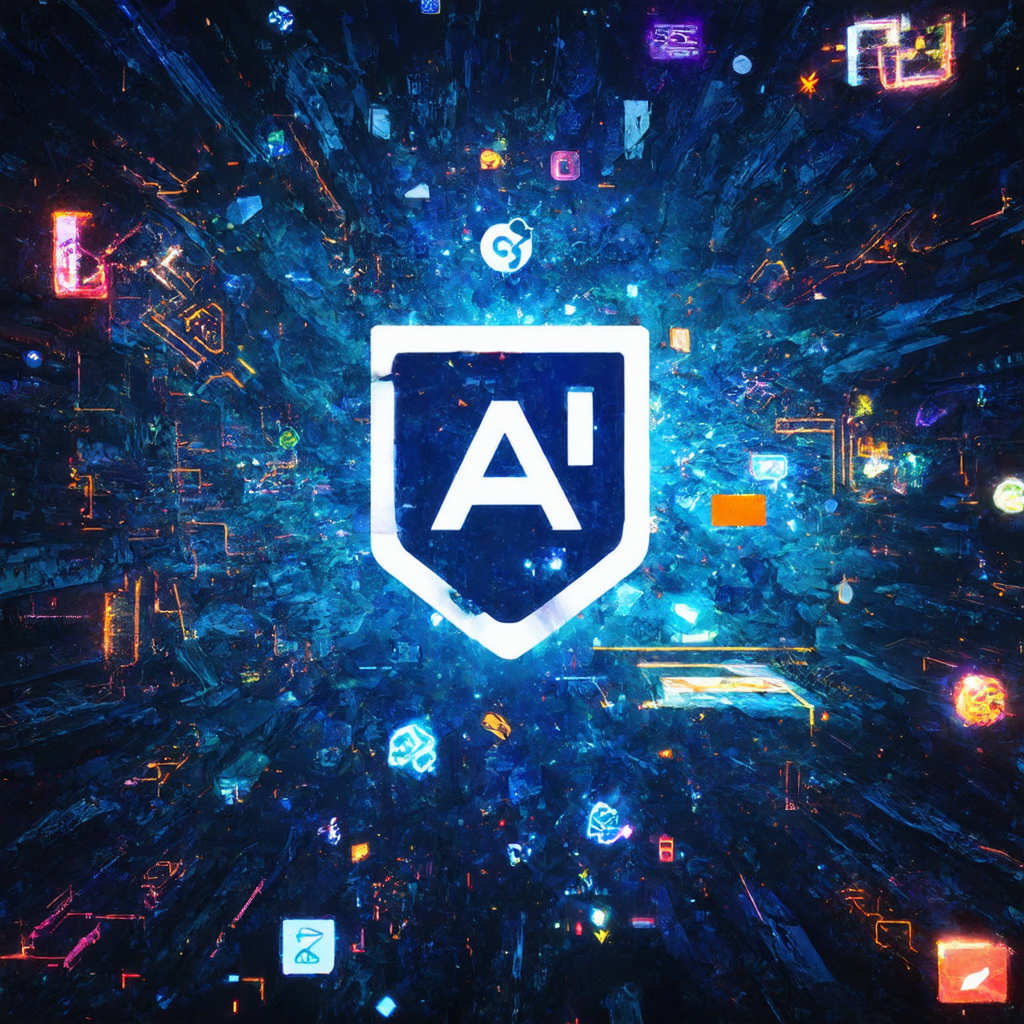
The Current AI Chatbot Landscape
The AI chatbot landscape is evolving rapidly, with new players entering the market and established ones continually improving their offerings. As a leading AI chatbot software provider, we’ve observed significant advancements in natural language processing and machine learning that have revolutionized the capabilities of these digital assistants.
Today’s AI chatbots are more sophisticated than ever, capable of understanding context, handling complex queries, and even engaging in human-like conversations. This evolution has led to their widespread adoption across various industries, from customer service to healthcare and education.
Is ChatGPT still the best AI?
While ChatGPT has undoubtedly made waves in the AI community, it’s important to note that the concept of “best” can be subjective and depends on specific use cases. ChatGPT, developed by OpenAI, has showcased impressive capabilities in generating human-like text and assisting with a wide range of tasks. However, it’s not the only player in the field.
At Messenger Bot, we’ve developed our own AI-powered chatbot that offers unique features tailored for business communication and customer engagement. While ChatGPT excels in general conversation and content generation, our solution is specifically designed to enhance customer interactions across various platforms.
Comparing ChatGPT with other leading AI chatbots
When comparing ChatGPT with other leading AI chatbots, it’s crucial to consider factors such as specialization, integration capabilities, and customization options. For instance, our AI chatbot offers seamless integration with popular messaging platforms like Facebook Messenger and Instagram, making it ideal for businesses looking to enhance their social media presence.
Other notable contenders in the AI chatbot space include:
- IBM Watson Assistant: Known for its enterprise-grade solutions and advanced natural language understanding.
- Microsoft Copilot: Integrated with Microsoft 365, offering AI-powered assistance across various applications.
- Google’s Dialogflow: A versatile platform for building conversational interfaces across multiple channels.
Each of these AI chatbots has its strengths, and the best choice depends on your specific needs. While ChatGPT excels in generating human-like responses, our Messenger Bot solution offers tailored features for business communication, including automated workflows, multilingual support, and e-commerce integration.
As the AI chatbot landscape continues to evolve, we’re committed to staying at the forefront of innovation, ensuring that our customers have access to the most advanced and effective chatbot solutions available.
III. Exploring Free AI Chatbot Options
As the demand for AI chatbot software continues to grow, many businesses and individuals are seeking cost-effective solutions to enhance their customer interactions. The good news is that there are indeed free AI chatbot options available in the market. These free alternatives can provide a great starting point for those looking to explore the benefits of AI-powered conversational interfaces without a significant financial investment.
At Messenger Bot, we understand the importance of accessible AI solutions. While our platform offers advanced features and customization options, we recognize that some users may want to start with a free option to test the waters. Let’s explore some of the free AI chatbot options available and how they compare to more comprehensive solutions.
A. Is there a free AI chatbot?
Yes, there are several free AI chatbot options available for users to explore. These free chatbots often come with basic functionalities and can be a great way to get started with AI-powered customer interactions. Some popular free AI chatbot platforms include:
- Dialogflow by Google: Offers a free tier with limited features for building conversational interfaces.
- MobileMonkey: Provides a free plan for Facebook Messenger bots with basic functionality.
- Botpress: An open-source chatbot platform with a free self-hosted option.
- Brain Pod AI’s Chat Assistant: While not entirely free, it offers a demo version to experience AI-powered conversations.
While these free options can be useful for getting started, it’s important to note that they often come with limitations in terms of features, customization, and scalability. As your needs grow, you may find that a more robust solution like our Messenger Bot platform offers the advanced capabilities required for comprehensive customer engagement.
B. Best AI chatbot free alternatives
When exploring free AI chatbot alternatives, it’s crucial to consider your specific needs and the platforms you intend to use. Here are some of the best free AI chatbot options available:
- Tidio: Offers a free plan with basic chatbot functionality and live chat features.
- Landbot.io: Provides a free tier for creating simple conversational flows.
- Chatfuel: Offers a free plan for Facebook Messenger bots with limited features.
- RASA: An open-source framework for building contextual AI assistants.
These free alternatives can be excellent for small businesses or individuals looking to experiment with AI chatbots. However, as your requirements evolve, you may find that a more comprehensive solution like our Messenger Bot platform offers the scalability and advanced features needed for growing businesses.
It’s worth noting that while ChatGPT has gained significant popularity, it’s primarily designed as a conversational AI model rather than a dedicated chatbot platform for business use. For those seeking a ChatGPT-like experience, Brain Pod AI’s Chat Assistant offers a similar conversational AI capability that can be integrated into various applications.
As you explore these free options, keep in mind that investing in a more robust AI chatbot software like Messenger Bot can provide long-term benefits in terms of customization, integration capabilities, and advanced features such as multilingual support and e-commerce integrations. These capabilities can significantly enhance your customer engagement strategies and drive business growth.
Top AI Chatbot Software in 2023
As we navigate through 2023, the landscape of AI chatbot software continues to evolve rapidly. At Messenger Bot, we’ve been at the forefront of this evolution, offering cutting-edge AI chatbot solutions that cater to diverse business needs. The market is brimming with options, but certain platforms stand out for their innovative features and robust capabilities.
What is the best AI chatbot right now?
Determining the “best” AI chatbot software depends on specific business requirements, but several platforms have consistently demonstrated excellence. Our Messenger Bot platform is designed to offer a comprehensive suite of features that rival and often surpass those of other leading chatbots.
ChatGPT, developed by OpenAI, remains a prominent player in the AI chatbot arena. Its natural language processing capabilities have set a high standard for conversational AI. However, for businesses seeking a more tailored solution, platforms like ours offer customizable features that can be fine-tuned to specific industry needs.
Another noteworthy contender is Brain Pod AI, which has garnered attention for its versatile AI applications, including chatbot functionality. Their platform offers a range of AI-powered tools that complement chatbot capabilities, making it a strong choice for businesses looking for an all-in-one AI solution.
For those prioritizing multilingual support, our multilingual chatbot integration offers seamless communication across various languages, a feature that’s becoming increasingly crucial in our globalized business environment.
Features and capabilities of leading AI chatbot platforms
Leading AI chatbot platforms, including ours, share several key features that define their effectiveness:
- Natural Language Processing (NLP): Advanced NLP allows chatbots to understand and respond to user queries more accurately, mimicking human-like conversations.
- Machine Learning Capabilities: The ability to learn from interactions and improve over time is crucial for maintaining relevance and effectiveness.
- Integration Flexibility: Top platforms offer easy integration with various channels, including websites, social media platforms, and messaging apps.
- Customization Options: The ability to tailor the chatbot’s personality, responses, and workflow to align with brand identity is a key feature we pride ourselves on at Messenger Bot.
- Analytics and Reporting: Comprehensive analytics tools help businesses track performance and gain insights into customer interactions.
- Multilingual Support: As global markets expand, the capacity to communicate in multiple languages becomes increasingly important.
Our platform at Messenger Bot incorporates all these features, with a particular emphasis on AI-driven chatbot optimization to ensure peak performance and user satisfaction.
While platforms like ChatGPT excel in general conversational abilities, our focus on business-specific applications allows for more targeted solutions. For instance, our e-commerce integrations are designed to boost sales and improve customer service in online retail environments.
As the AI chatbot landscape continues to evolve, we’re committed to staying at the forefront of innovation, constantly updating our features to meet the changing needs of businesses and their customers.
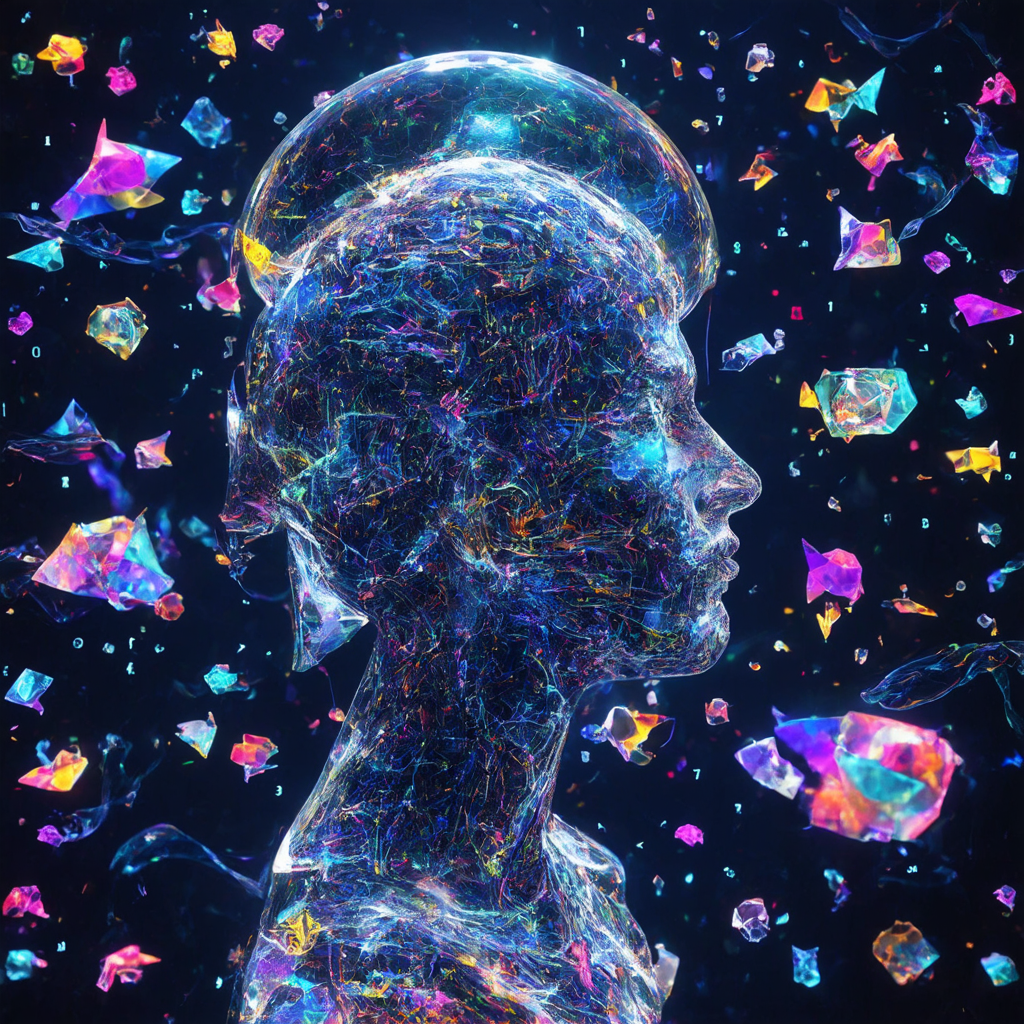
V. Specialized AI Chatbots
As AI chatbot software continues to evolve, we’re seeing an increasing number of specialized applications designed to cater to specific needs and industries. At Messenger Bot, we’ve observed this trend firsthand and have adapted our platform to meet these diverse requirements. Let’s explore two key areas where specialized AI chatbots are making significant impacts.
A. Roleplay AI chat bot applications
Roleplay AI chatbots have gained considerable popularity, offering unique interactive experiences for users. These specialized bots can simulate characters, scenarios, or specific personalities, making them valuable tools for various applications:
- Entertainment: Roleplay chatbots provide immersive storytelling experiences, allowing users to engage with fictional characters or participate in interactive narratives.
- Training and Education: In professional settings, these bots can simulate real-world scenarios, helping employees practice customer interactions or decision-making processes.
- Therapy and Mental Health: Some roleplay chatbots are designed to provide emotional support or act as companions, offering a safe space for users to express themselves.
For instance, Brain Pod AI’s Chat Assistant can be customized to take on various roles, enhancing user engagement across different contexts. This versatility makes roleplay AI chatbots a powerful tool for businesses looking to create unique, interactive experiences for their customers.
B. Industry-specific AI chatbot solutions
Many industries are now leveraging AI chatbot software tailored to their specific needs. These specialized solutions are designed to handle industry-specific queries, processes, and regulations:
- Healthcare: AI chatbots in healthcare can assist with appointment scheduling, provide basic medical information, and even help with preliminary symptom assessment.
- Finance: In the financial sector, chatbots can handle account inquiries, assist with transactions, and provide personalized financial advice.
- E-commerce: AI chatbots in e-commerce can offer product recommendations, handle order tracking, and provide customer support, significantly enhancing the shopping experience.
- Real Estate: Chatbots in real estate can assist with property searches, schedule viewings, and provide information about neighborhoods and market trends.
At Messenger Bot, we’ve developed features that cater to these industry-specific needs. Our platform allows for easy integration of specialized knowledge bases and custom workflows, enabling businesses to create AI chatbots that are truly tailored to their industry requirements.
The rise of specialized AI chatbots demonstrates the versatility and adaptability of AI chatbot software. As these technologies continue to advance, we can expect to see even more innovative and targeted applications across various sectors, further revolutionizing how businesses interact with their customers and streamline their operations.
VI. Implementing AI Chatbots
Implementing AI chatbots has become a game-changer for businesses looking to enhance customer interactions and streamline operations. As an AI chatbot software provider, we’ve seen firsthand how these intelligent virtual assistants can transform customer service and engagement strategies. Let’s explore some practical applications and best practices for integrating AI chatbots into your business ecosystem.
A. Chat bot examples and use cases
AI chatbots have found their place across various industries, each with unique applications:
- E-commerce: Chatbots can assist with product recommendations, order tracking, and cart recovery. For instance, Amazon uses AI chatbots to guide customers through their vast product catalog and handle basic customer service inquiries.
- Healthcare: AI-powered chatbots can schedule appointments, provide basic medical information, and even offer mental health support. Ada Health is an excellent example of an AI chatbot that conducts initial patient assessments.
- Banking: Many banks use chatbots for account inquiries, transaction assistance, and fraud detection. Bank of America’s Erica is a prime example of an AI assistant in the financial sector.
- Travel: Chatbots in the travel industry help with booking flights, hotels, and providing travel information. Expedia uses a chatbot to assist customers with their travel plans and answer frequently asked questions.
At Messenger Bot, we’ve developed versatile AI chatbot solutions that can be tailored to these and many other industries, ensuring businesses can leverage the power of AI to enhance their customer interactions.
B. Best practices for AI chatbot integration
To maximize the effectiveness of your AI chatbot, consider these best practices:
- Define clear objectives: Determine what you want your chatbot to achieve. Whether it’s reducing customer service workload or increasing sales, having clear goals will guide your implementation strategy.
- Personalize the experience: Utilize data to provide personalized responses. Our AI chatbot features include the ability to remember user preferences and past interactions, creating a more engaging experience.
- Maintain a conversational tone: Ensure your chatbot communicates in a natural, friendly manner. This helps in building rapport with users and makes interactions more pleasant.
- Provide seamless human handoff: While AI chatbots can handle many queries, some situations require human intervention. Implement a smooth transition to human agents when necessary.
- Continuous learning and improvement: Regularly analyze chatbot performance and user feedback. Use these insights to refine and improve your chatbot’s responses and capabilities.
- Multilingual support: If you have a global audience, consider implementing a multilingual chatbot to break down language barriers and provide support in various languages.
- Ensure data privacy and security: Implement robust security measures to protect user data and comply with relevant regulations like GDPR.
By following these best practices and leveraging the advanced features of AI chatbot platforms like ours, businesses can create engaging, efficient, and effective chatbot experiences. Whether you’re looking to boost sales or enhance customer support, AI chatbots offer a versatile solution adaptable to various business needs.
VII. The Future of AI Chatbot Technology
As we look ahead, the future of AI chatbot technology promises to be both exciting and transformative. The rapid advancements in artificial intelligence and natural language processing are paving the way for more sophisticated, intuitive, and human-like chatbot interactions. At Messenger Bot, we’re at the forefront of these developments, constantly innovating to provide cutting-edge AI chatbot software that meets the evolving needs of businesses and consumers alike.
A. Emerging trends in AI chatbot development
The landscape of AI chatbot development is evolving at a breakneck pace, with several key trends shaping the future of this technology:
1. Enhanced Natural Language Understanding (NLU): Future chatbots will have an even more nuanced understanding of human language, including context, sentiment, and intent. This will lead to more natural and meaningful conversations, bridging the gap between human and machine interactions.
2. Multimodal AI: We’re seeing a shift towards chatbots that can process and respond to various types of input, including text, voice, images, and even gestures. This multimodal approach will make chatbots more versatile and accessible across different platforms and devices.
3. Emotion AI: The next generation of chatbots will be equipped with emotional intelligence, allowing them to recognize and respond to human emotions. This advancement will enable more empathetic and personalized interactions, particularly in customer service scenarios.
4. Improved Personalization: AI chatbots will leverage more sophisticated machine learning algorithms to offer highly personalized experiences. By analyzing user data and behavior patterns, these chatbots will provide tailored recommendations and solutions.
5. Integration with IoT and Smart Devices: As the Internet of Things (IoT) expands, we’ll see increased integration between AI chatbots and smart devices. This will enable more seamless control and interaction with connected home and office systems.
6. Augmented and Virtual Reality Integration: The convergence of AI chatbots with AR and VR technologies will create immersive interactive experiences, particularly in sectors like e-commerce, education, and entertainment.
7. Blockchain for Enhanced Security: To address concerns about data privacy and security, future chatbot developments may incorporate blockchain technology to ensure secure and transparent data handling.
B. Potential impacts on business and customer service
The evolution of AI chatbot technology is set to revolutionize business operations and customer service in numerous ways:
1. 24/7 Personalized Support: Advanced AI chatbots will provide round-the-clock, personalized customer support, significantly reducing response times and improving customer satisfaction. This always-on support system will be particularly beneficial for global businesses operating across different time zones.
2. Cost-Effective Scaling: As AI chatbots become more sophisticated, businesses will be able to scale their customer service operations more efficiently and cost-effectively. This will allow companies of all sizes to provide high-quality support without the need for a large human workforce.
3. Data-Driven Insights: Future AI chatbots will not only handle customer interactions but also provide valuable insights into customer behavior, preferences, and pain points. This data will be crucial for businesses to refine their products, services, and marketing strategies.
4. Seamless Omnichannel Experience: AI chatbots will facilitate a more cohesive omnichannel experience, seamlessly integrating customer interactions across various platforms such as websites, mobile apps, social media, and messaging platforms.
5. Proactive Customer Engagement: Advanced AI chatbots will be able to anticipate customer needs and proactively engage with them, offering personalized recommendations, support, and solutions before issues arise.
6. Enhanced Employee Productivity: By handling routine queries and tasks, AI chatbots will free up human employees to focus on more complex and value-added activities, ultimately boosting overall productivity and job satisfaction.
7. Improved Lead Generation and Sales: Sophisticated AI chatbots will play a crucial role in lead generation and sales processes, guiding potential customers through the sales funnel with personalized recommendations and timely follow-ups.
8. Multilingual Support: As multilingual chatbots become more advanced, businesses will be able to provide seamless support to a global customer base, breaking down language barriers and expanding market reach.
9. Compliance and Risk Management: AI chatbots will assist in ensuring regulatory compliance by consistently delivering accurate information and maintaining detailed interaction logs for auditing purposes.
As we continue to develop and refine our AI chatbot software at Messenger Bot, we’re excited about the possibilities these advancements bring. The future of AI chatbot technology holds immense potential for transforming business operations, enhancing customer experiences, and driving innovation across industries. By staying at the forefront of these developments, we’re committed to providing our clients with cutting-edge AI chatbot solutions that meet the evolving demands of the digital landscape.
